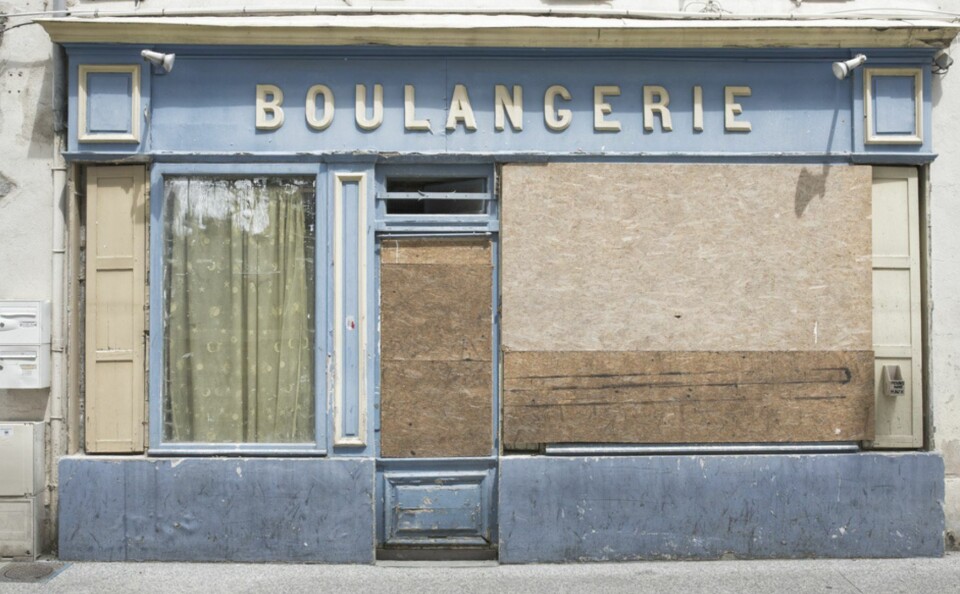-
Letters: The cost of living is not always lower in France than in the US
Connexion readers share their views on energy, healthcare, education and daily living expenses
-
Letters: Our French village fête is literally booming
Connexion reader says traditional festivities have been replaced by three consecutive nights of loud music
-
Comment: Why hairdressers rule French villages
Columnist Samantha David notes that the coiffeuse is more valuable than a boucherie and boulangerie
Do you agree? Paris politicians ignore rural France at their peril
Rural voters are looking for leaders outside the Paris bubble who will protect village life, says columnist Nick Inman

If you live in the French countryside, you do not need anyone to tell you about rural desertification.
If you are a politician in Paris, you probably do not know or care, but there is something you need to hear: if you do not go and sort out the countryside, it is likely that the countryside will come and sort you out.
Mobile services emphasise what is missing
There are no reliable national statistics available to quantify rural desertification but the evidence is to be seen in villages everywhere.
A reasonable estimate is that 40% of French communes have seen their remaining service de proximité (a shop, post office, library or cafe) close over the last four decades.
A fleet of vans and buses bringing improvised butchers, bakers, libraries, cafes and even itinerant museums to some out-of-the-way places once a week does something to alleviate the problem – but also emphasises what is missing.
To crown it all, France Services sends out its own missionaries to help villagers do their administrative tasks online – tasks that used to be done much more easily when the bureaucracy maintained branch offices.
It is true that such itinerant entrepreneurs – as well as the growth of community-owned multi-services – shows the resilience and versatility of French communities.
Read more: Villagers in France save last local shop by funding it themselves
Gilets jaunes protests came out of the blue to Parisians
However, they can only provide a partial solution. They will not stop trouble brewing as urban areas boom in these post-industrial times and rural communities become dormitories of weekend homes or get left behind altogether.
In 2018, the city-country divide produced the gilets jaunes protest that seemed to come out of the blue to Parisians, who enjoy excellent public transport.
They did not realise that in the countryside car ownership is not optional and fuel prices have a big impact on ordinary life.
Rural dwellers also pay their taxes
Too often, the answer from the capital has been concentration to achieve economies of scale.
Closing tiny village schools and bussing pupils to mega-schools in the towns might make economic sense but it can have a devastating impact on a community.
Likewise, moving medical services to the cities or, worse, delivering them by telemedicine machines sends the message that rural dwellers, who also pay their taxes, are being treated as lesser citizens.
As doctors and dentists retire, younger ones need to be persuaded or obliged to go where there is a need for them, not to the coasts and fashionable cities where they would rather be.
Read more: Seven questions about ‘medical deserts’ in France
Will the countryside rise up in protest?
That is the strong possibility mooted by the geo-political analyst Jérôme Fourquet in his recent book La France d’après: Tableau politique.
There is, he says, a measurable correlation between closing a local grocery shop and a steep rise in votes for Marine Le Pen’s Rassemblement National party.
Villagers might not approve of all Ms Le Pen’s policies, and they might not have direct experience of the immigration she is always going on about, but they are increasingly tempted to give her a chance as an ‘outsider’ who feels their pain and will speak up for them in Paris.
If urbane, urban people such as Emmanuel Macron do not ‘get it’ because they move too easily in a privileged metropolitan world, and if they do not formulate a just policy that takes care of the population of the countryside, they might regret it.
At the next presidential election, the power of the rural vote might well mobilise behind a candidate who does not promise business as Parisian usual.
Related articles
French village strives to attract doctor with video pitch
Customer buys two baguettes for €500 to help struggling French bakery
Tax cuts and foreign doctors: Macron's wishlist to revive France























